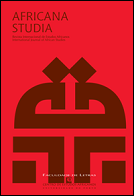Angola-Congo. L’invention de la frontière du Lunda (1889-1893)
Resumo
It is a well-received idea that colonial boundaries were arbitrarily designed and that, more than other international boundaries, they were artificial in character. At the same time, the paradox is that, in the postcolonial era, these ‘artificial’ borders were hardly contested and that they sheltered the development of strong ‘national’ identities. The case of the Angola-Congo boundary as negotiated in the 1890’s by Portugal and the Congo Free State shows that its definition resulted from a dialectical interplay between actors in the centre as well as in the periphery of the imperialist system. The ‘Lunda question’ resulted in part from local factors and in particular from the challenge faced at the time by the ‘Lunda alliance’ confronted as it was by new economic and cultural identities. Colonial boundaries added a new dimension to the complex world of overlapping and non exclusive African borders. Yet they did not destroy the existing networks of ancient boundaries. This may help to understand why, up to now at least, the new boundaries were accepted as an added form of legitimacy.
Downloads
Downloads
Publicado
Como Citar
Edição
Secção
Licença
Os autores cedem à Revista Africana Studia o direito exclusivo de publicação dos seus textos, sob qualquer meio, incluindo a sua reprodução e venda em suporte papel ou digital, bem como a sua disponibilização em regime de livre acesso em bases de dados.
As imagens, no caso de serem originais e enviadas por via postal, serão devolvidas se assim for explicitado pelos autores.
A Africana Studia é uma revista de acesso aberto que visa promover a divulgação e o debate da investigação científica. Todos os artigos aceitos são, portanto, publicados gratuitamente para autores e editores.




